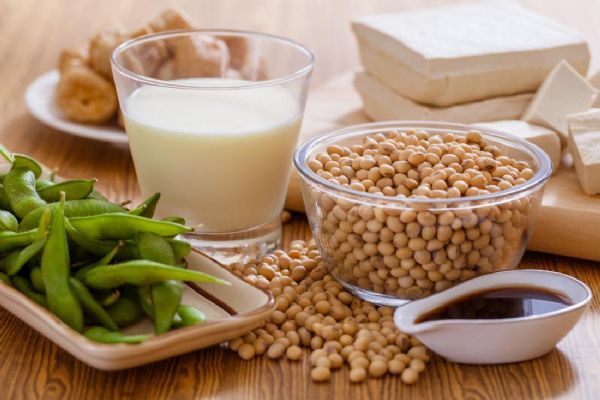Release date: 2017-05-02
Researchers at Penn State University have found that adding soy protein to the diet can alleviate the symptoms of inflammatory bowel disease, such as colonic inflammation and loss of intestinal barrier function. Mouse-related research paves the way for the development of human research strategies for the disease.
Researchers from Pennsylvania State University, former graduates of the Department of Food Science, Zachary Bitzer and Amy Wopperer, collaborated with colleagues at the Department of Food Science, Joshua Lambert, and colleagues to complete the study.
The research team published its latest research in the Journal of Nutritional Biochemistry.
It is estimated that approximately 3.1 million adults in the United States suffer from inflammatory bowel disease (IBD), such as Crohn's disease and ulcerative colitis.
Finding a way to alleviate the symptoms of inflammatory bowel disease (IBD) is important because chronic inflammation, which is characteristic of inflammatory bowel disease (IBD), is a major risk factor for colon cancer. Inflammation of the colon also leads to loss of intestinal barrier function and increased intestinal permeability.
In this latest study, the Pennsylvania State University team studied the effects of soy protein concentrate on mouse inflammation and intestinal barrier function. They replaced 12% of the other sources of protein in the experimental mice with soy protein concentrate. The amount of soy protein concentrate replacement is equivalent to the amount that humans can eat.
"We don't want to exclude all other proteins by adding soy protein," Bitzer said. “On the contrary, we want to find a situation that is more relevant to human eating.â€
The researchers found that soy protein concentrate has antioxidant and cytoprotective effects on human intestinal cells grown in the laboratory. In addition, in induced IBD mice, replacing only 12% of other proteins with soy protein concentrate is sufficient to prevent weight loss and improve spleen swelling. This evidence suggests that soy protein concentrate may be able to alleviate the severity of inflammation.
"Soy protein concentrate reduces the markers associated with colonic inflammation and loss of intestinal barrier function in IBD mice," Wopperer said.
Source: medicalnewstoday/tulip
Organic Echinacea Purpurea Extract
Echinacea is a genus or group of herbaceous flowering plants in the daisy family. The Echinacea genus has nine species, which are commonly called purple coneflowers. They are found only in eastern and central North America, where they are found growing in moist to dry prairies and open wooded areas. They have large, showy heads of composite flowers, blooming from early to late summer. These flowering plants and their parts have different uses. Some species are cultivated in gardens for their showy flowers. Echinacea purpurea is used in folk medicine. Two of the species, E. tennesseensis, and E. laevigata, are listed in the United States as endangered species.
Echinacea Purpurea Extract,Echinacea Extract Powder,Echinacea Extract Organic,Organic Echinacea Extract
Organicway (xi'an) Food Ingredients Inc. , https://www.organicwayince.com
